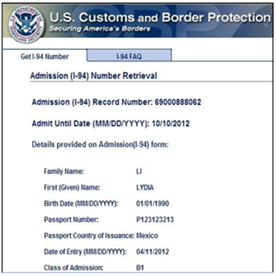URGENT: Refugees need your support.
Show our neighbors that they are (still) welcome by supporting food assistance, healthcare, and other critical needs.
Please give today.
SUPPORT REFUGEESShow our neighbors that they are (still) welcome by supporting food assistance, healthcare, and other critical needs.
Please give today.
SUPPORT REFUGEESThe browser you are using is not supported. Please consider using a modern browser.
Frequently Asked Questions
What are the different types of parole?
The following chart lists some of the most common types of parole and their Class of Admission codes:
How do I know what type of parole I have?
You can find out your parole type by looking for the Class of Admission (usually a two- to three-letter code in all caps) listed on your Form I-94, travel record. If you do not have a copy of your Form I-94, you can locate your record on the Customs and Border Protection (CBP) page by selecting “Get Most Recent I-94” at this link and entering your information. The record should look like the example image, with the Class of Admission indicating the type of parole.

How do I find out if I can receive benefits based on my parole?
The benefits you are eligible for vary based on the type of parole received. Please consult with a qualified immigration attorney or DOJ Accredited Representative to get a clear understanding of your parole type and what benefits you may be eligible for.
Can I get a work permit based on my parole?
Non-citizens with most types of parole can apply for work authorization while they remain in the United States based on a grant of parole under the (c)(11) filing category and, if approved, become eligible to work. However, parolees granted work authorization will only be authorized to work for the length of their parole. So, if your parole is granted for two years, you will only receive work authorization for that same two-year period.
Does parole keep me safe from being removed from the United States or placed into removal proceedings by the Department of Homeland Security (DHS)?
Parole is discretionary and can be revoked or canceled, so it is important to consider other forms of immigration relief that you may be eligible for that can help you to remain in the United States.
[1] On November 6, 2024, a federal judge struck down the Keeping Families Together (KFT) Parole in Place policy altogether. This means USCIS can no longer accept or adjudicate KFT parole applications. However, applications that were approved as of 6:38 p.m. on August 26, 2024, are not affected by the district court decision. Individuals granted parole before 6:38 p.m. on August 26, 2024, may continue to remain in the United States while they pursue family-based petitions and adjustment of status.